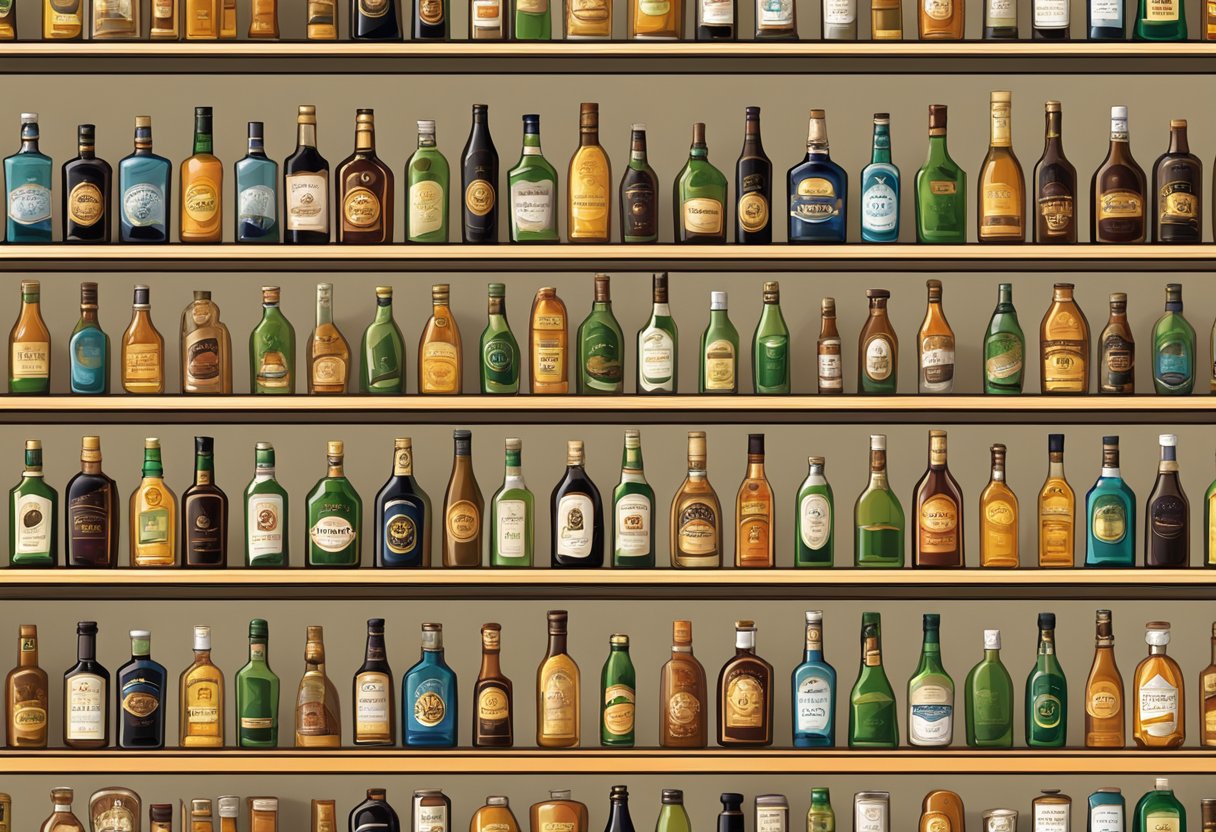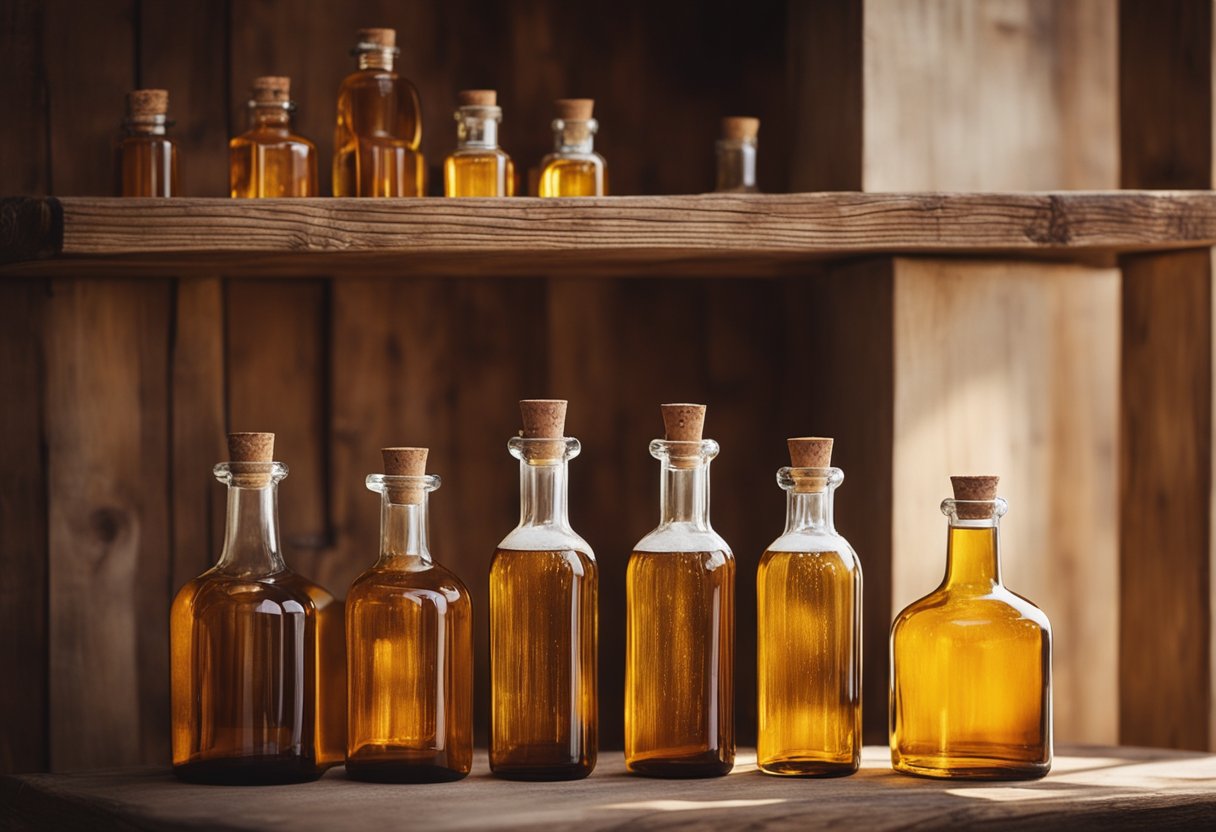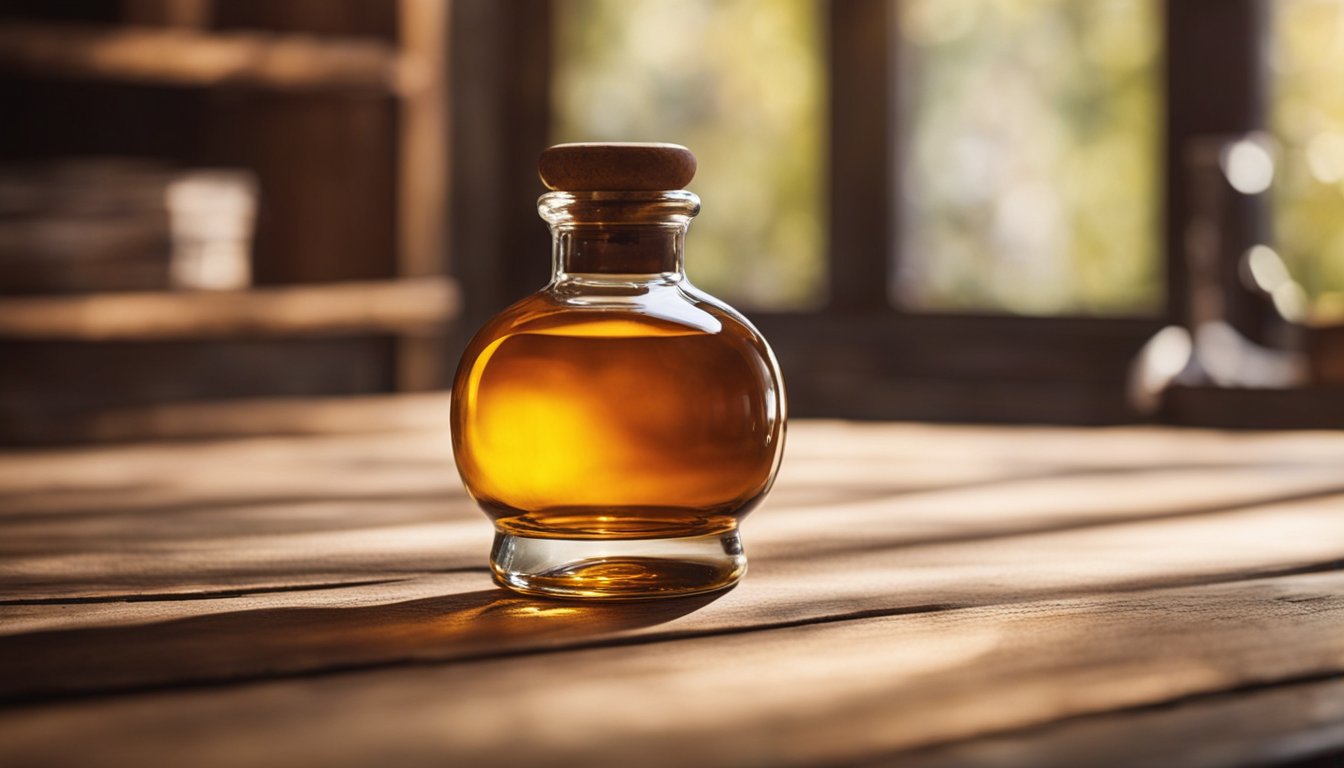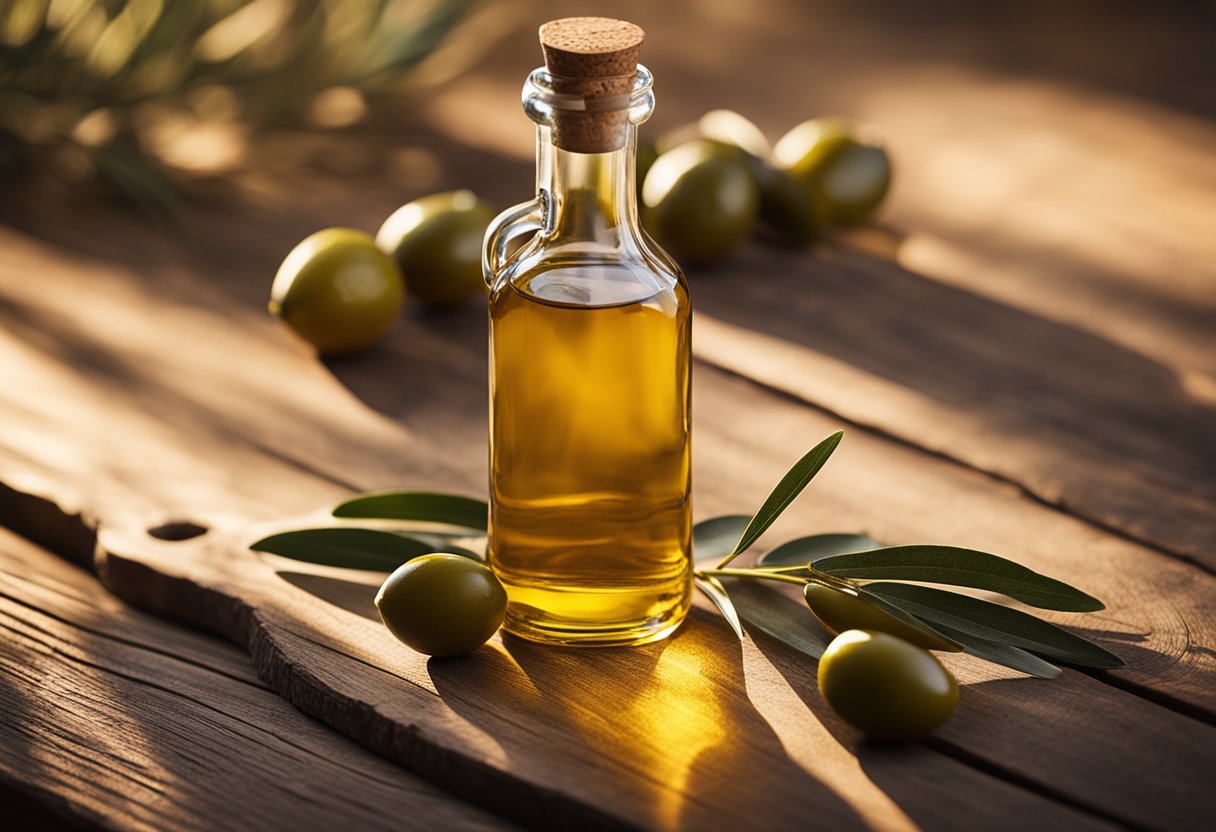Wholesale liquor bottles for sale are a great option for businesses looking to save money or stock up on inventory. Liquor bottles are a necessary component for any bar or liquor store, and purchasing them in bulk can be a cost-effective solution. Wholesale liquor bottle suppliers offer a wide variety of bottle shapes, sizes, and materials to choose from, making it easy to find the perfect fit for any business.

One of the main advantages of purchasing wholesale liquor bottles is the cost savings. Buying in bulk allows businesses to take advantage of discounted prices, which can significantly lower their overall expenses. Additionally, wholesale suppliers often offer flexible pricing and shipping options, making it easy to find a solution that fits within a business’s budget and timeline.
Another benefit of purchasing wholesale liquor bottles is the wide selection of options available. Suppliers offer a variety of materials, including glass and plastic, as well as a range of sizes and shapes to choose from. This allows businesses to find the perfect bottle to fit their needs, whether they are looking for a classic glass bottle or a more unique option. Overall, purchasing wholesale liquor bottles can be a smart and cost-effective choice for businesses looking to stock up on inventory or save money on their purchases.
Understanding Wholesale Liquor Bottles

Types of Liquor Bottles
Wholesale liquor bottles come in various types, each designed for specific types of alcohol. The most common types include wine bottles, spirit bottles, and beer bottles. Wine bottles are typically tall and narrow, with a capacity ranging from 375ml to 1.5L. Spirit bottles, on the other hand, come in various shapes and sizes, including square, round, and rectangular, with a capacity ranging from 50ml to 1L. Beer bottles are typically designed to hold 12-16 ounces of beer and come in either glass or plastic.
Material Considerations
Wholesale liquor bottles are made from different materials, including glass, plastic, and metal. Glass is the most common material used for liquor bottles, as it is durable, visually appealing, and easy to recycle. Plastic bottles are also popular, especially for spirits and beer, as they are lightweight, shatterproof, and less expensive than glass. Metal bottles, such as those made from aluminum, are used for canned beer and other canned beverages.
Bottle Capacity and Measurements
Liquor bottles come in different sizes, and it’s essential to understand the standard measurements used in the industry. The most common measurement is the milliliter (ml), which is used to measure the volume of the bottle. The capacity of a liquor bottle is typically indicated on the label, and it can range from 50ml to 1.5L. It’s also important to note that the size of the bottle affects the price, with larger bottles being more expensive than smaller ones.
In conclusion, understanding the different types of liquor bottles, the materials used, and the standard measurements is essential when buying wholesale liquor bottles. This knowledge helps buyers make informed decisions and ensures that they get the right bottles for their needs.

When it comes to purchasing wholesale liquor bottles, there are several factors to consider. One of the most important is choosing the right supplier. Here are some key considerations to keep in mind when navigating liquor bottle suppliers.
Local vs. International Suppliers
One of the first decisions to make is whether to work with a local or international supplier. Local suppliers may offer faster shipping times and easier communication, but international suppliers may offer lower prices and a wider selection of products. It’s important to weigh the pros and cons of each option and choose the supplier that best fits your needs.
Evaluating Supplier Reliability
Another important factor to consider is supplier reliability. It’s important to choose a supplier with a track record of delivering quality products on time and responding promptly to any issues or concerns. One way to evaluate reliability is to check online reviews and ratings from other customers. Additionally, it’s a good idea to ask for references and to communicate clearly with the supplier about your expectations.
Customization Options
Finally, it’s important to consider customization options when choosing a liquor bottle supplier. Some suppliers may offer the ability to customize bottle shapes, sizes, and labeling. This can be a great way to create a unique and memorable product that stands out from the competition. However, it’s important to make sure that any customizations are within your budget and that the supplier has the necessary capabilities to deliver high-quality results.
By keeping these factors in mind, you can navigate the world of liquor bottle suppliers with confidence and find the right supplier to meet your needs.
Regulatory Compliance for Liquor Bottles
Labeling Requirements
When it comes to wholesale liquor bottles, there are strict labeling requirements that must be followed to ensure regulatory compliance. The Alcohol and Tobacco Tax and Trade Bureau (TTB) requires that all liquor bottles be labeled with certain information, including the brand name, type of liquor, alcohol content, and the producer’s name and address. It is important to ensure that all labeling is accurate and up-to-date, as any discrepancies could result in fines or even the revocation of a liquor license.
In addition to the TTB’s labeling requirements, some states may have their own specific labeling requirements. It is important to research and comply with all state and federal regulations to ensure that liquor bottles are properly labeled and ready for sale.
Health and Safety Standards
Liquor bottles must also meet certain health and safety standards to ensure regulatory compliance. The bottles must be made from materials that are safe for holding liquor and must be sealed properly to prevent any leaks or contamination. In addition, the bottles must be stored in a safe and secure location, away from any potential hazards or sources of heat.
It is important to note that failure to comply with health and safety standards can result in serious consequences, including fines, legal action, and even the loss of a liquor license. Therefore, it is crucial that all wholesale liquor bottles meet the necessary health and safety standards to ensure regulatory compliance.
Overall, regulatory compliance is a crucial aspect of selling wholesale liquor bottles. By complying with all labeling requirements and health and safety standards, businesses can ensure that their products are safe, legal, and ready for sale.
Purchasing Strategies
Bulk Order Discounts
When purchasing wholesale liquor bottles, one of the best ways to save money is by ordering in bulk. Suppliers often offer discounts for large orders, so it’s important to consider the quantity needed before making a purchase. It’s also important to keep in mind that some suppliers may have minimum order requirements in order to receive bulk discounts.
Negotiating with Suppliers
Another way to save money on wholesale liquor bottles is through negotiation with suppliers. It’s important to research and compare prices from different suppliers in order to find the best deal. Once a supplier is chosen, it’s important to negotiate prices and terms to ensure the best possible deal. This may include negotiating bulk order discounts, payment terms, and shipping costs.
Logistics and Shipping
When purchasing wholesale liquor bottles, it’s important to consider logistics and shipping. Suppliers may offer different shipping options, such as ground or expedited shipping, and it’s important to choose the option that best fits the needs of the business. Additionally, it’s important to consider the cost of shipping when negotiating with suppliers, as it can significantly impact the overall cost of the order. Finally, it’s important to ensure that the supplier has a reliable shipping process to ensure that orders are delivered on time and in good condition.
Marketing Wholesale Liquor Bottles
Branding Strategies
One of the most important aspects of marketing wholesale liquor bottles is creating a strong brand identity. A well-designed label and packaging can make a significant impact on the customer’s perception of the product. The label should be eye-catching and informative, with clear information about the product’s contents, origin, and alcohol content.
Using unique graphics and fonts can also help the product stand out on the shelf. The brand name should be memorable, easy to pronounce, and relevant to the product. It is also important to maintain consistency across all marketing materials, including social media, advertising, and promotional events.
Target Market Analysis
To effectively market wholesale liquor bottles, it is crucial to understand the target market. The target market for liquor bottles may vary based on the type of alcohol, price point, and packaging. For example, premium liquor bottles may appeal to a more affluent consumer, while budget-friendly options may appeal to college students or young adults.
It is also important to consider the distribution channels and geographic location when analyzing the target market. For instance, a distributor targeting bars and restaurants may have different marketing strategies than one targeting retail stores.
Overall, understanding the target market and developing a strong brand identity are key components of marketing wholesale liquor bottles. By utilizing effective branding strategies and analyzing the target market, distributors can increase sales and establish a strong presence in the industry.















